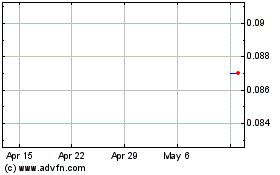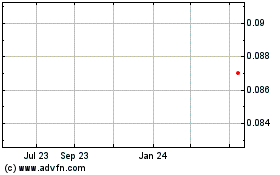Samsung Shares Unloaded in Galaxy Note 7 Fire Sale
10 September 2016 - 12:10AM
Dow Jones News
Investors wiped more than $10 billion off Samsung Electronics
Co.'s market value Friday after U.S. air-safety regulators took the
unusual step of singling out its Galaxy Note 7 smartphone as a
potential airborne fire hazard.
The shares closed at 1.575 million won ($1,432), down 3.9%.
Airlines including Qantas Airways Ltd. and Virgin Australia
Holdings Ltd. warned passengers not to use or charge their Galaxy
Note 7s on planes, while more reports of fires surfaced in the
U.S.
Samsung, which last week recalled 2.5 million of the waterproof,
iris-scanning smartphones following reports of fires caused by
faulty batteries, said Friday it plans to expedite new shipments in
response to the U.S. Federal Aviation Administration's decision to
ban the use of the device on planes.
Samsung is also offering $25 gift cards to U.S. Galaxy Note 7
owners who exchange their phones, and free virtual-reality headsets
and a voucher for about $50 of content to Indian consumers who
preordered the Note 7.
In South Korea, some carrier shops said no customers had
canceled Galaxy Note 7 orders despite its being the subject of one
of the largest recalls in smartphone history.
"There is no resistance to the Galaxy Note 7," said a staff
member at an SK Telecom Co. shop in Seoul. "Customers have called
in to ask about exchanging their devices, but we haven't had a
single cancellation yet."
Still, Kim Dan-bee, a 26-year-old high-school teacher in Icheon,
a city south of Seoul, said she's now leaning toward Apple Inc.'s
iPhone 7, unveiled this week.
"Personally, getting a Galaxy Note 7 would be an easier
transition for me," said Ms. Kim, who's considering a replacement
for her two-year-old Galaxy Note. "But I'm a bit worried it might
explode."
In China, Samsung launched the Galaxy Note 7 on Sept. 1 despite
the fire reports, saying batteries in phones sold there come from a
nonfaulty supplier. Batteries for Galaxy Note 7 phones sold in
China are from Hong Kong-based Amperex Technology Ltd., a unit of
Japan's TDK Corp., one of two suppliers; the other is Samsung SDI
Co.
In a flashy intersection in Beijing's ritzy Sanlitun shopping
district, a Samsung pavilion offers passersby a chance to test the
Note 7 and its virtual-reality headset. Asked whether the Note 7
had battery issues in China, one attendant said she wasn't sure,
while another said the Chinese battery supply is fine.
Samsung's broader challenge in China's smartphone market, the
world's largest, is competing with the country's many budget
brands. Once the leader there, Samsung ranked sixth in China in the
second quarter with an 8% market share, according to research firm
Canalys.
The Note 7 troubles are "a big blow for Samsung when it's trying
to recover its position in China," said Nicole Peng, an analyst at
research firm Canalys.
Pavilion visitor Cheng Wei, 36, said he hadn't heard about the
Note 7 batteries, but that Samsung's phones aren't as good a value
as their Chinese counterparts.
"I don't care too much about phone brands," said Mr. Cheng,
currently a Meizu 3 user. "But if the features are all the same, of
course I would still prefer a domestic brand."
Samsung has used its popular Galaxy phones to boost its mobile
business, which has been struggling for more than two years amid
strong competition from Apple and Chinese rivals.
Lilian Lin in Beijing and Juro Osawa in Hong Kong contributed to
this article.
Write to Eun-Young Jeong at eun-young.jeong@wsj.com and Eva
Douat eva.dou@wsj.com
(END) Dow Jones Newswires
September 09, 2016 09:55 ET (13:55 GMT)
Copyright (c) 2016 Dow Jones & Company, Inc.
Virgin Australia (ASX:VAH)
Historical Stock Chart
From Feb 2025 to Mar 2025

Virgin Australia (ASX:VAH)
Historical Stock Chart
From Mar 2024 to Mar 2025
